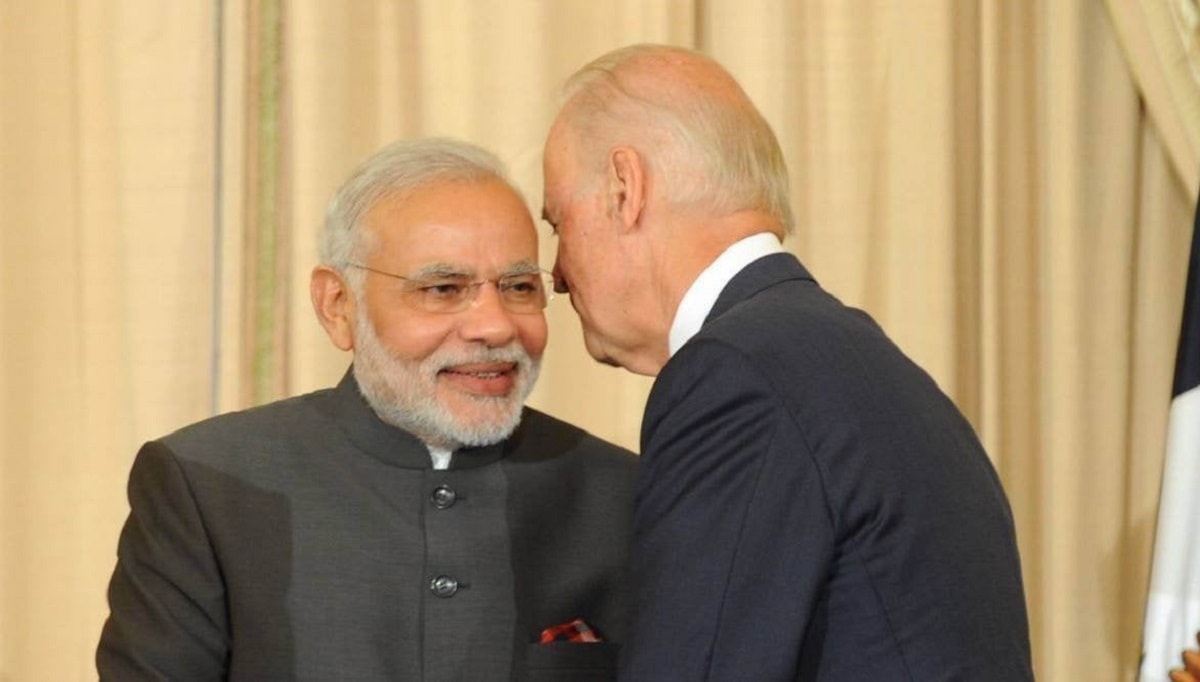China creates problems for allies in the East and the West. We ought to work together, not just to push back on China’s malicious and destabilizing behavior, but to make ourselves stronger. Two countries, Italy and India, are emerging as valuable partners in these efforts. These nations are key links in a chain that spans from the Indo-Pacific, across the Middle East and Europe, to the U.S. and Canada.
Italian Prime Minister Giorgia Meloni made Delhi her first stop in her inaugural trip to the Indo-Pacific region. It proved quite productive. She and Indian Prime Minister Narendra Modi announced a strategic partnership between their nations, pledging heightened cooperation across sectors including defense, economy, trade, investment, and connectivity. The announcement received little more attention than the usual, highly orchestrated state visits that produce little of substance. But this duo could deliver a transformative geostrategic alignment.
India and Italy enjoy enviable geographical advantages. India is at the apex of the Indian Ocean, sitting at the continental crossroads of east-to-west digital and maritime infrastructure. Under Modi’s muscular global engagement (and buoyed by the world’s largest and quite young population), India is fast reclaiming its historical status as the dominant economy of South and Southeast Asia. It is now the fastest-growing large economy in the world.
Italy occupies the central position in the Mediterranean and boasts the largest contiguous coastline of any nation along the sea. The peninsula is the gateway through the Mediterranean to Africa and Asia. Today it is also a critical route for delivering much-needed liquified natural gas from America to Europe. Italy dominates connectivity and commerce across the Mediterranean from both east to west and north to south.
In modern times, the historic land routes from India to Europe though the Caucuses and the Levant are interrupted by troubles from Pakistan to Syria. That won’t change anytime soon. The sea route, passing through the Red Sea, offers the only practicable thoroughfare for reinvigorating the historic commercial relationship between India and Europe.
The opportunity to make that connection has never looked better, thanks to improved and expanding commerce between Israel and the United Arab Emirates brought forth by the Abraham Accords. Such new partnerships are paving the road for a seismic jump in commerce between the Mediterranean and Arabian seas. Both India and Italy have close commercial ties with Israel and the UAE, and that should set the stage for a transformative change in commerce and connectivity between Asia and Europe.
It’s not just geography and geopolitics that prime this partnership to take off. Good domestic politics also come into play. Improved trade and commerce directly contribute to the two nations’ Make in India and Made in Italy campaigns. Close commercial ties between Mediterranean and Arabian Sea economies can drive economic growth and infrastructure development in southern Italy, a region that lags behind its northern counterparts. Similarly, India requires greater access to and ties with European and global markets if it is to meet the employment needs of its youth and the aspirations of its expanding middle class. Stronger economic, commercial and security ties between India and Italy are important catalysts to meeting the domestic political goals of the respective democratic governments.
Great power competition is also instrumental in making Italy and India fast friends. The “limitless partnership” of China and Russia has created adversarial relationships with nations of the Indo-Pacific and the Transatlantic community who are committed to free and open spaces. This only accentuates the geopolitical convergence of Rome and Delhi.
Improved economic, commercial and security ties between the nations will benefit their friends and partners as well. Countries from Japan to the United States, from Europe to Africa, will benefit from closer contact and alignment between the Mediterranean and Arabian seas propelled by the strategic partnership between India and Italy. One likely new partnership to emerge from the India-Italy connection is a new grouping of I2U2 – India, Israel, the UAE, and the U.S.
Expect more to come from both. India will serve as president of this year’s G20, and Italy is the incoming president of the G7. Both have an opportunity to promote and strengthen their roles in creating a bridge between the free and open Indo-Pacific and the Atlantic through the Mediterranean. Italy can further celebrate and cement India’s projected rise to be the third largest economy by the end of the decade by promoting entry into the G7 grouping next year.
Kaush Arha is the president of the Free & Open Indo-Pacific Forum and a senior fellow at both the Krach Institute for Tech Diplomacy at Purdue and the Atlantic Council. James Jay Carafano is a Heritage Foundation vice president, responsible for the think tank’s research on matters of national security and foreign relations.

